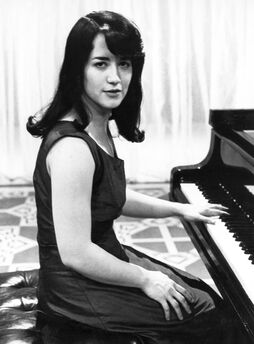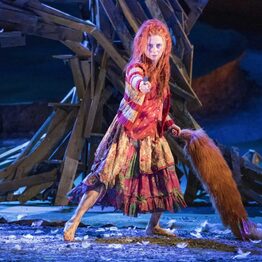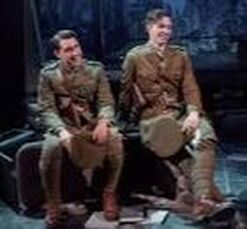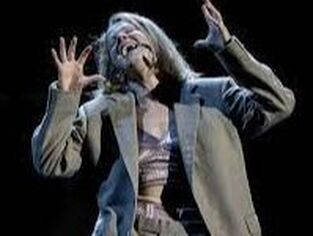|
 Argerich in Warsaw – documentary Click here for tickets There was such an enthusiastic response to my inclusion last week of Martha Argerich’s performance of the Beethoven Piano Fantasy with Seiji Ozawa that I thought you might like to see more of her. This is an excellent new documentary, featuring both her first appearance aged 24 at the Warsaw Chopin Competition in 1965, locked in fierce musical struggle with the Brazilian pianist Arthur Moreira Lima and a 2010 performance in the same city of her signature piece, the one which won her the Competition so many years ago, Chopin’s Piano Concerto No 1 in E minor. Martha Argerich’s appearance at the 1965 Chopin Piano Competition in Warsaw marked the beginning of an incomparable career. With her flowing hair and impetuous and mysterious demeanour, the 24-year-old Argentinian conquered the hearts of everyone present. For much of the competition, however, her victory was far from certain. Her closest competitor was Arthur Moreira Lima. It all came down to the final performance of Chopin’s First Piano Concerto, and that’s when the legend was born. The music in this excellent film is interspersed with some cogent comments from the likes of Daniel Barenboim, Isata Kanneh-Mason, Gabriele Montero, Rafał Blechacz, who won the Chopin Competion in 2005 and even her old rival, Arthur Moreira Lima. Unlike most documetaries, you come away from this one having understood much more about its subject.  The Cunning Little Vixen Click here for tickets We haven’t had a full-length opera for a while and I noticed a comment from an interview with Simon Rattle that his favourite opera was this production of Janacek’s The Cunning Little Vixen from Glyndebourne. The tale of a quick-witted fox and her escape from confinement for a life in the forest, The Cunning Little Vixen is an unsentimental parable of death and rebirth that lives through the instinctive and immediate world of nature, animal and human, which Janácek loved so much. Melly Still’s production for Glyndebourne finds the "delicate balance between whimsy and mysticism" (Daily Telegraph) at the heart of the opera, which Vladimir Jurowski conducts "with lustrous style: you can hear the birds in the score, feel the sunshine and thrill to the starlit night sky in the final scene" (Opera Today). Janáček’s opera was inspired by his home in the Moravian countryside. A fox is captured by a farmer. After a few years on the farm, she manages to find freedom and escapes to the wild where she finds love and family. This Czech opera, with its evocative score and fantastic staging, is widely regarded as a classic. The cast includes Lucy Crowe, Emma Bell, Sergei Leiferkus, Mischa Schelomianski, Adrian Thompson, William Dazeley, Jean Rigby and Colin Judson.  Into Battle Click here for tickets Into Battle is a new play by Hugh Salmon which reveals the true story of Keith Rae and the Hon. Billy Grenfell who fought a ‘bitter feud’ at Oxford University in the years leading up to World War One but were destined to die fighting alongside each other for the same regiment in the same battle on the same day (30 July 1915). It has been described as ‘Downton Abbey goes to war’. Into Battle unearths a true story that has been buried for over 100 years: a story revealing the political and social divisions tearing Britain apart in the early years of the 20th century. In 1906, of the fifty-three freshers who went up to Balliol College, Oxford University, eighteen had been educated at Eton. By 1910 they had formed an exclusive group, including the future war poets, the Hon. Julian Grenfell and Patrick Shaw Stewart. Standing up to the behaviour of the Etonians were the socially aware Keith Rae and England rugby international Ronald Poulton, who were dedicated to improving the lives of the poor and hungry in the back streets of Oxford. By 1912, the feud has polarised to Keith Rae and Hon. Billy Grenfell on an individual level. After an incident between them, Billy is sent down for a year, disgracing his aristocratic mother Lady Ettie Desborough. Finally, Into Battle reveals that the differences between Keith and Billy, and their destinies, are resolved in the face of a far greater adversity. The play takes its title ‘Into Battle’ from a poem by Julian Grenfell which describes the inspiration that a soldier can take from nature in the quiet contemplative moments before battle. It was published posthumously and enjoyed great success during WW1. "But Day shall clasp him with strong hands, And Night shall fold him in soft wings." First produced at Greenwich Theatre in 2021, Into Battle stars Gabriel Freilich as the Hon. Julian Grenfell, Nikolas Salmon as Billy Grenfell, Joe Gill as Keith Rae, Sam Barrett as Ronald Poulton and Molly Gaisford as Lady Ettie Desborough. It is directed by Ellie Jones.  Come to the Cabaret – Amy Lennox Click here to watch This wonderful clip of Amy Lennox as Sally Bowles in the most recent London revival of Kander and Ebb’s great musical Cabaret, came to me from my friend Adele. Somehow I missed her performance at the Olivier Awards last year. She deserved to win an Olivier for this role but of course she wasn’t in the first cast (Amy Lennox, not Adele) and so wasn’t eligible. Sally Bowles, a scrappy, untalented English cabaret singer in the chaos that was Berlin in the ‘30s, was one of the great inventions of Christopher Isherwood in his Berlin Stories from 1939. The Berlin Stories was adapted in 1951 by John van Druten into the Broadway play I Am a Camera which, in turn, in 1966, became Cabaret with a book by Joe Masteroff. Sally was a waif, one of the flotsam and jetsam trying to float in the debauchery and despair of a Berlin inhabited by desperate people unaware of the catstrophe that awaited them, trying to keep her uncertain balance in a world that was tilting away from her. Actually, not quite an invention; Sally Bowles was based on Jean Ross, a close friend of Isherwood’s during his Berlin days. Amy Lennox entirely inhabits the hopelessness and hopefulness of Sally, her uncertain singing voice (Amy Lennox is a marvellous singer, Sally Bowles isn’t), her vulgarity and her vulnerability. All of this is on abundant display in her version of the title song. Thank you, Adele.
0 Comments
|
AuthorRuth Leon is a writer and critic specialising in music and theatre. Archives
March 2024
Categories
All
|
 RSS Feed
RSS Feed
